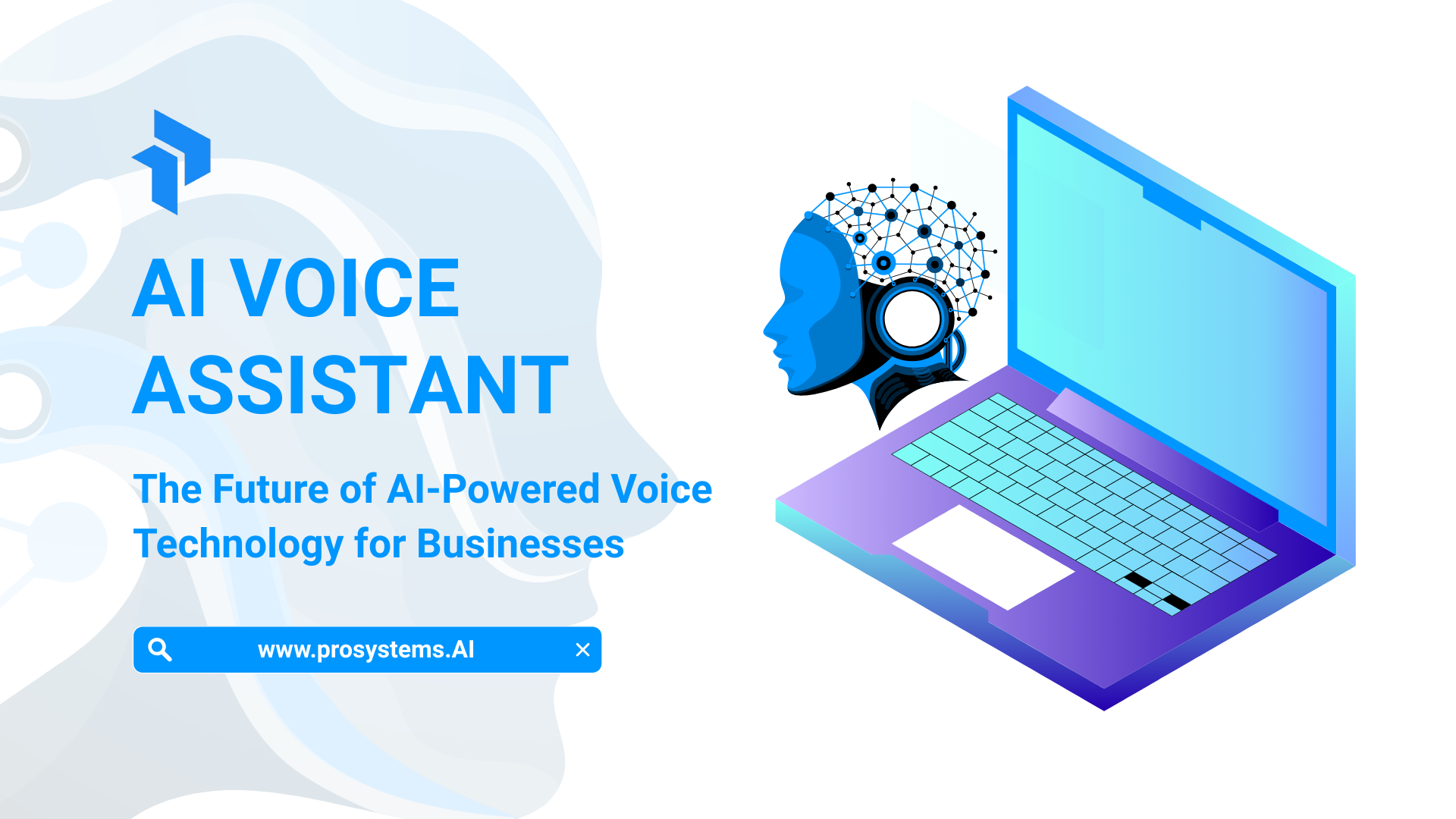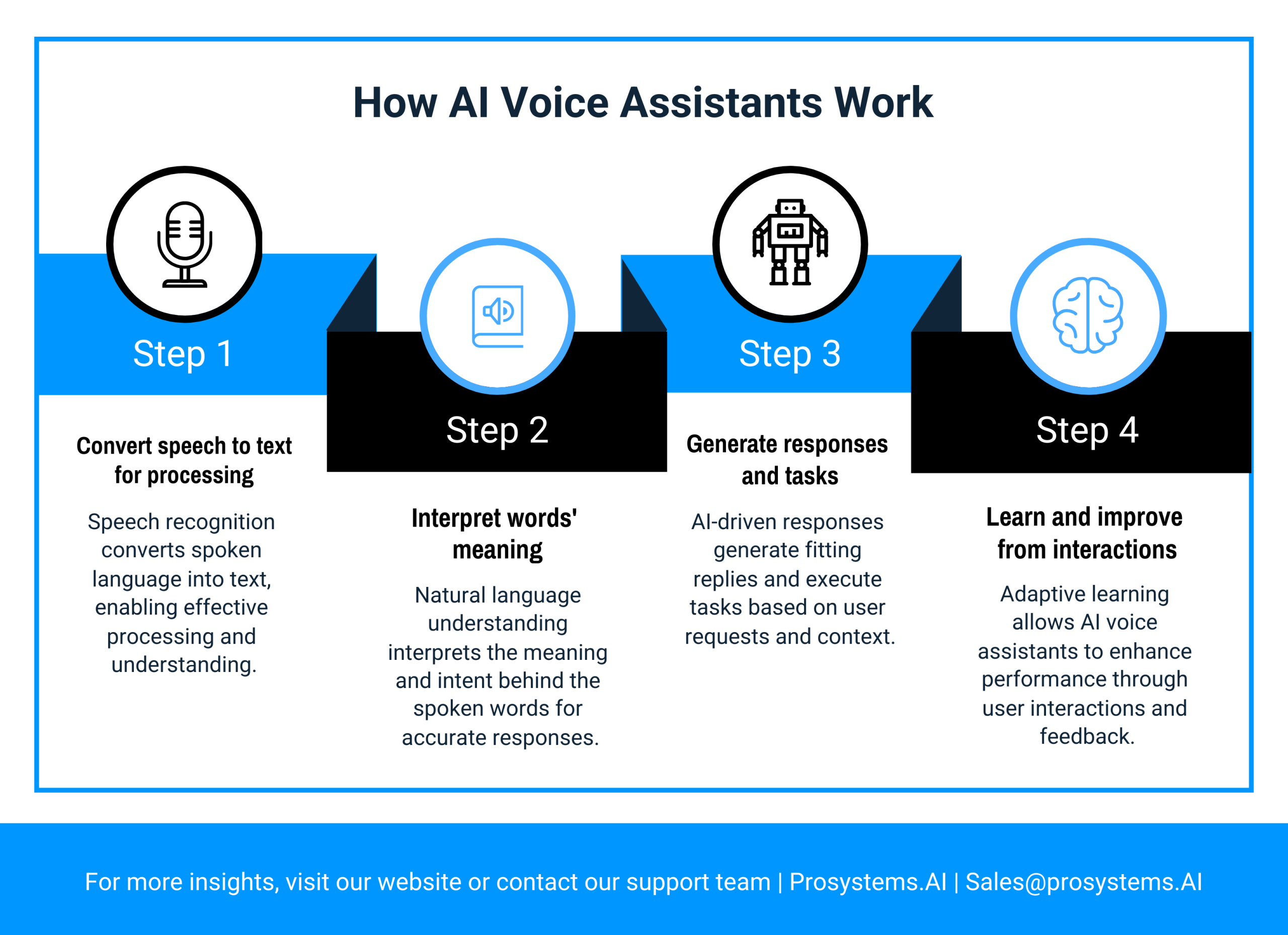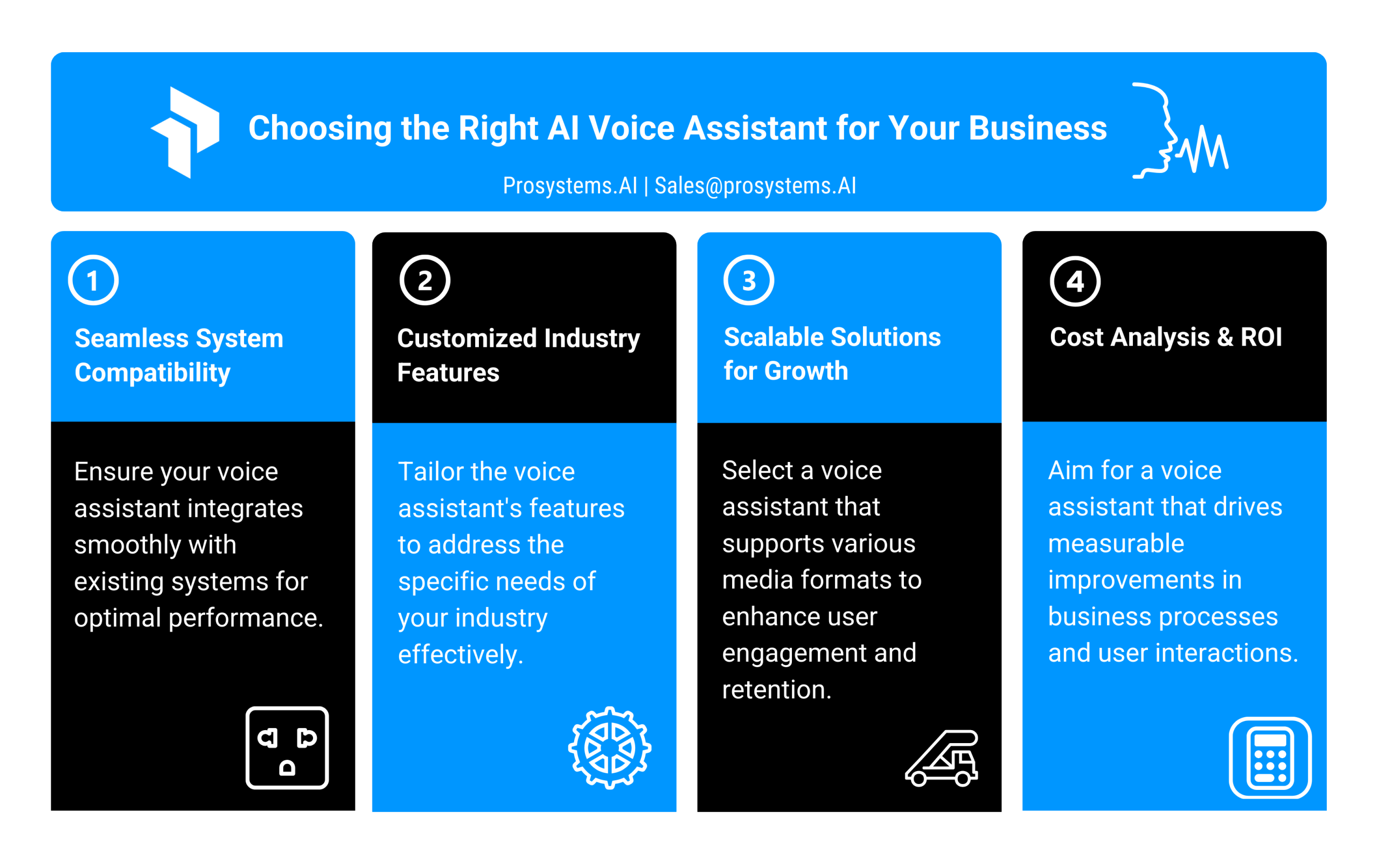
AI voice assistants are revolutionizing the way businesses engage with customers and streamline operations. Powered by cutting-edge technologies like artificial intelligence (AI), machine learning, and natural language processing (NLP), these advanced systems can accurately understand, interpret, and respond to voice commands in real time.
Today, conversational AI voice assistants are more than just a convenience—they’re a powerful business tool. Companies across industries are leveraging AI-powered voice assistants to handle customer service inquiries, automate appointment bookings, process transactions, and even drive sales—all while delivering fast, natural, and human-like interactions that enhance the customer experience.
In this guide, we’ll explore how businesses can harness the full potential of AI voice assistants, their key benefits, and how to seamlessly integrate them into existing workflows.
What is an AI Voice Assistant?
An AI voice assistant is an advanced technology that processes and responds to voice commands using artificial intelligence (AI), natural language processing (NLP), and machine learning.
These digital assistants can perform various tasks, from answering questions to managing business operations, all through voice interaction.
How AI Voice Assistants Work
AI voice assistants rely on artificial intelligence (AI), natural language processing (NLP), and machine learning (ML) to interpret spoken commands, generate appropriate responses, and continuously improve their performance. Their functionality can be broken down into four key stages:
1. Speech Recognition (Automatic Speech Recognition – ASR)
- Captures spoken language and converts it into text using advanced AI algorithms.
- Can process different accents, speech speeds, and background noise for greater accuracy.
- Uses context-aware processing to distinguish similar-sounding words and phrases.
2. Natural Language Understanding (NLU)
- Analyzes the transcribed text to determine user intent and extract key details.
- Uses semantic analysis to understand variations in phrasing and sentence structure.
- Can identify important elements like names, locations, dates, and product preferences.
- Recognizes emotions and tone to adjust responses for better engagement.
3. AI-Driven Responses & Task Execution
- Matches user intent with a knowledge base or predefined workflows.
- Uses machine learning models to generate dynamic, context-aware replies.
- Can trigger automated actions, such as scheduling meetings, placing orders, or retrieving information.
- Adjusts responses based on previous interactions for a more personalized experience.
4. Adaptive Learning & Continuous Enhancement
- Collects data from user interactions to refine future responses.
- Uses self-learning algorithms to improve speech recognition and accuracy over time.
- Learns user preferences and behaviors, enabling proactive and predictive interactions.
- Allows businesses to update and optimize responses to better meet customer needs.
By combining these intelligent processes, AI voice assistants provide fast, efficient, and human-like conversations, making them a game-changer for both businesses and individual users.

Types of AI Voice Assistants
1. Personal AI Assistants:
- Examples: Siri, Alexa, Google Assistant.
- Help with daily tasks like setting reminders, playing music, or controlling smart home devices.
2. Conversational AI Voice Assistants for Businesses:
- Used in industries like customer service, healthcare, and retail.
- Handles customer inquiries, schedules appointments, and processes transactions efficiently.
Difference between traditional voice assistants (e.g., Siri, Alexa) and conversational AI voice assistants designed for businesses.
While both traditional voice assistants (like Siri and Alexa) and conversational AI voice assistants use artificial intelligence (AI) and natural language processing (NLP), they serve different purposes.
Traditional voice assistants are built for personal use, whereas conversational AI voice assistants are designed to automate business processes, enhance customer interactions, and improve operational efficiency.
1. Traditional Voice Assistants (Siri, Alexa, Google Assistant, etc.)
- Designed for personal convenience – assists users with everyday tasks like setting alarms and checking the weather.
- Limited conversational depth – can recognize simple commands but struggle with multi-step conversations.
- Pre-programmed responses – answers are typically fixed and may not adapt to unique user needs.
- Entertainment & smart home control – used for music playback, home automation, and general knowledge queries.
- Minimal business utility – lacks integration with enterprise systems like CRM, customer support, or sales platforms.
2. Conversational AI Voice Assistants for Businesses
- Engineered for business applications – automates customer service, booking, and order processing.
- Advanced conversational capabilities – understands context, responds dynamically, and engages in natural dialogues.
- AI-driven automation – reduces workload by handling repetitive customer inquiries and transactions.
- Personalized interactions – adapts responses based on customer behavior and preferences.
- Seamless business integration – connects with CRM software, e-commerce platforms, and communication tools.
Key Differences: Side-by-Side Comparison
| Feature | Conversational AI Voice Assistant | Traditional Phone System (IVR) | Human Call Center Agent |
|---|---|---|---|
| 24/7 Availability | ✅ Always on, no downtime | ❌ Limited to business hours or costly after-hours service | ❌ Limited by shifts and time zones |
| Scalability | ✅ Instantly handles thousands of calls simultaneously | ❌ Limited call handling capacity | ❌ Expensive and complex to scale |
| Personalization | ✅ Tailors responses using customer data and history | ❌ Static menus with no personalization | ✅ Can personalize based on memory and experience |
| Response Speed | ✅ Instant responses, no hold times | ❌ Long wait times in queues | ❌ Subject to availability and workload |
| Cost Efficiency | ✅ Lower operational costs, no need for large staff | ✅ Cheaper than humans but lacks flexibility | ❌ High labor and training costs |
| Consistency | ✅ Delivers uniform service every time | ✅ Consistent but rigid | ❌ Varies by agent skill and mood |
| Integration with CRM / Business Systems | ✅ Easy integration with modern platforms (CRM, ERP, etc.) | ❌ Limited or manual integration | ✅ Can integrate but requires training and manual effort |
| Natural Language Understanding (NLU) | ✅ Understands freeform speech and complex queries | ❌ Menu-driven, no real understanding | ✅ Excellent but subject to fatigue and errors |
| Learning & Improvement | ✅ Improves with usage through machine learning | ❌ No learning capability | ✅ Learns over time but limited by individual |
| Multilingual Support | ✅ Supports multiple languages instantly | ❌ Limited language support | ❌ Requires multilingual staff |
| Compliance & Data Security | ✅ Configurable for GDPR, HIPAA, etc. | ✅ Can be compliant, but rigid | ✅ Can be compliant, but prone to human error |
| Setup Time | ✅ Fast deployment (weeks, not months) | ❌ Slow, hardware-dependent | ❌ Long recruitment and training process |
IV. Key Benefits of AI Voice Assistants
AI voice assistants are reshaping communication by streamlining operations, enhancing customer interactions, and optimizing efficiency. Below are some of the most significant advantages they offer:
1. Round-the-Clock Availability & Cost Reduction
- AI voice assistants operate 24/7 without breaks, ensuring businesses can respond to customer inquiries at any time of day.
- Eliminates the need for a large customer support team, leading to substantial savings on salaries, training, and operational expenses.
- Capable of managing multiple conversations at once, minimizing call queues and boosting efficiency.
- Effortlessly scales to accommodate high call volumes during peak hours without requiring additional staff.
2. Superior Customer Experience with Instant & Multilingual Support
- Provides instant responses, significantly reducing wait times and improving customer satisfaction.
- Uses advanced NLP algorithms to engage in natural, context-aware conversations, making interactions more fluid and human-like.
- Supports multiple languages, allowing businesses to cater to diverse customer bases without hiring multilingual staff.
- Can detect tone and sentiment, adjusting responses accordingly to better address customer concerns.
- Automates common tasks like appointment scheduling, order processing, and FAQs, freeing up human agents to focus on more complex issues.
3. High Accuracy & Personalized Interactions
- Utilizes AI-driven learning to accurately process requests, reducing misunderstandings and errors.
- Remembers previous interactions, enabling personalized responses and tailored recommendations for returning customers.
- Continuously improves over time through machine learning, refining responses based on user behavior and feedback.
- Ensures consistent and precise service, eliminating the risk of human fatigue or inconsistency in responses.
Top AI voice assistants for businesses in 2025
As AI technology continues to evolve, voice assistants have become essential tools for businesses looking to improve efficiency, automate customer service, and streamline operations.
Below is a comparison of some of the best AI voice assistants for businesses in 2025, highlighting their key features, pricing, and ideal use cases.
Prosystems.AI
Best for:
- Automated Customer Support & FAQs
Quickly responds to frequently asked customer questions.
Lightens the load on human support teams by resolving routine inquiries. - Seamless Appointment Scheduling & Confirmations
Manages bookings for businesses like medical clinics, salons, and repair services.
Sends automated reminders to reduce no-shows and improve efficiency. - Order Management & Delivery Tracking
Helps restaurants, e-commerce platforms, and logistics providers process orders.
Offers real-time delivery status updates to keep customers informed. - Intelligent Lead Generation & Qualification
Engages potential clients, gathers essential details, and determines lead quality.
Enables sales teams to focus on the most promising prospects. - Automated Payment Reminders & Billing Assistance
Notifies customers of upcoming payments to reduce missed deadlines.
Answers billing-related questions and resolves basic payment concerns. - Customer Surveys & Feedback Collection
Conducts automated post-call surveys to collect valuable insights.
Helps businesses refine their services based on real customer input. - Rapid Emergency & Support Hotlines
Provides instant responses in urgent situations.
Transfers critical cases to human agents for immediate resolution. - Smart Hotel & Travel Reservations
Handles hotel bookings, flight reservations, and travel inquiries.
Keeps travelers updated with itinerary changes and reminders.
Key Features:
- Significant Cost Savings
Reduces dependence on human call agents, cutting operational costs by up to 90%.
Efficiently manages high call volumes without additional staffing. - Advanced Natural Language Processing (NLP)
Allows AI to interpret, process, and respond to human speech naturally.
Enables seamless, human-like conversations with customers. - Round-the-Clock Availability
Operates 24/7, ensuring no customer call goes unanswered.
Reduces wait times and enhances customer experience with instant support. - Multilingual Communication
Supports multiple languages to cater to a diverse customer base.
Improves accessibility and enhances global customer satisfaction. - Intelligent Call Routing & Transfers
Identifies customer needs and directs calls to the right department or live agent.
Optimizes call handling efficiency and minimizes workload for human reps. - Automated Scheduling & Appointment Management
Books, confirms, and reschedules appointments without human intervention.
Integrates with calendar systems to prevent double bookings and scheduling conflicts. - Lead Qualification & Sales Optimization
Engages prospects, collects key details, and assesses lead quality.
Assists in upselling and cross-selling products or services during calls. - Smart Call Summarization & Data Logging
Automatically generates call summaries and records them in CRM systems.
Helps businesses track customer interactions for better follow-ups and insights. - Emotion Detection & Sentiment Analysis
Recognizes customer emotions and adjusts responses accordingly.
Transfers calls to human agents when frustration or urgency is detected. - Seamless Business Tool Integration
Connects with CRM platforms, booking systems, and payment gateways.
Enhances workflow automation and improves operational efficiency.
Pricing:
Prosystems.ai offers the best value in AI voice assistants, delivering top-tier quality at the most competitive prices in the market.
PolyAI
Key Features:
- Natural and human-like voice interactions
- Handles complex conversations with contextual understanding
- Can automate inbound and outbound customer service calls
Pricing:
Custom pricing based on business needs | Can be very expensive
Spitch
Key Features:
- Supports both text and voice-based interactions
- Provides real-time speech analytics and voice biometrics
- Multilingual capabilities for global businesses
Pricing:
Tailored plans based on business size and requirements | Can be very expensive
VOCALLS
Key Features:
- AI-powered voice automation for inbound and outbound calls
- Reduces call center workload with intelligent responses
- Works seamlessly with existing customer support systems
Pricing:
Contact VOCALLS for a custom quote
IBM Watson Assistant
Key Features:
- Powerful conversational AI with deep learning capabilities
- Multi-channel integration for websites, apps, and phone systems
- Customizable chatbot and voice assistant functionalities
Pricing:
- Lite Plan: Free
- Standard Plan: Starts at $140/month
Oracle Digital Assistant
Key Features:
- AI-driven conversations for customer support and automation
- Prebuilt chatbots for Oracle applications
- Advanced natural language understanding (NLU)
Pricing:
Custom pricing based on enterprise needs | Can be very expensive
Choosing the Right AI Voice Assistant for Your Business

Selecting the best AI voice assistant is a strategic move that can enhance efficiency, customer engagement, and overall business success. Consider these key factors:
1. Compatibility with Your Existing Systems
- Ensure smooth integration with your CRM, helpdesk, and payment processing tools.
- Look for AI solutions that work seamlessly with platforms like Salesforce, HubSpot, or Shopify.
- Prioritize assistants with robust API support for easy automation.
2. Industry-Specific Customization
- Choose an AI voice assistant that can be tailored to your industry—whether in healthcare, real estate, hospitality, or retail.
- Opt for customizable scripts, conversation styles, and features that align with your brand.
- Ensure it supports specialized tasks like appointment scheduling or order processing.
3. Scalability for Business Growth
- Select a solution that adapts as your business expands, handling higher call volumes with ease.
- Cloud-based AI assistants offer flexibility for multi-location or international operations.
- Ensure the system can evolve with future advancements in AI technology.
4. Cost-Effectiveness & ROI
- Compare pricing models—monthly subscriptions, pay-per-use, or enterprise packages.
- Consider hidden costs such as integration, training, and ongoing maintenance.
- Evaluate potential savings in labor and operational costs versus initial investment.
Q&A: Understanding AI-Powered Voice Assistants & Conversational AI
1. What is an AI-powered voice assistant?
An AI-powered voice assistant is a smart technology that processes voice commands, understands natural language, and responds conversationally.
It helps businesses automate tasks like customer support, appointment scheduling, and sales inquiries without human intervention.
2. How is a conversational AI voice assistant different?
Unlike basic voice assistants that follow pre-set commands, a conversational AI voice assistant engages in dynamic, two-way conversations.
It understands context, remembers past interactions, and adapts its responses, making customer interactions more seamless and lifelike.
3. Which industries benefit the most from conversational AI voice assistants?
- Retail & E-commerce – Provides product recommendations, order tracking, and customer support.
- Healthcare – Schedules patient appointments and sends reminders.
- Real Estate – Qualifies leads and provides property details over the phone.
- Banking & Finance – Assists with secure transactions, account inquiries, and fraud detection.
- Travel & Hospitality – Handles hotel bookings, flight confirmations, and itinerary updates.
4. Can AI voice assistants fully replace human agents?
AI excels at handling repetitive tasks, but human agents remain crucial for complex problem-solving and sensitive customer issues.
The most effective approach is AI-human collaboration, where AI manages routine queries, freeing human agents to focus on high-value interactions.
5. How do AI voice assistants understand and respond to speech?
They use Natural Language Processing (NLP) to analyze speech patterns, detect intent, and generate human-like responses. Machine learning allows them to improve over time based on user interactions.
6. Can businesses customize AI voice assistants?
Yes! Customization options include:
✔ Voice tone & personality – Matches brand identity with a professional, friendly, or industry-specific voice.
✔ Predefined responses & workflows – Tailored to industry needs, whether it’s booking appointments or handling returns.
✔ System integrations – Connects seamlessly with CRMs, scheduling tools, and payment systems for streamlined automation.
7. Do AI-powered voice assistants support multiple languages?
Yes, many AI assistants offer multilingual capabilities, making them ideal for businesses serving international customers.
8. Are conversational AI voice assistants secure?
They follow strict security protocols, including encryption, authentication, and compliance with data regulations (such as GDPR and HIPAA) to ensure customer privacy and protection.
9. How much does an AI voice assistant cost?
Pricing varies depending on the provider, features, and usage. Common pricing models include:
✔ Subscription plans – Fixed monthly costs based on features.
✔ Pay-as-you-go models – Charges based on call volume or usage.
✔ Enterprise solutions – Custom pricing for large-scale businesses.
Leave a Reply